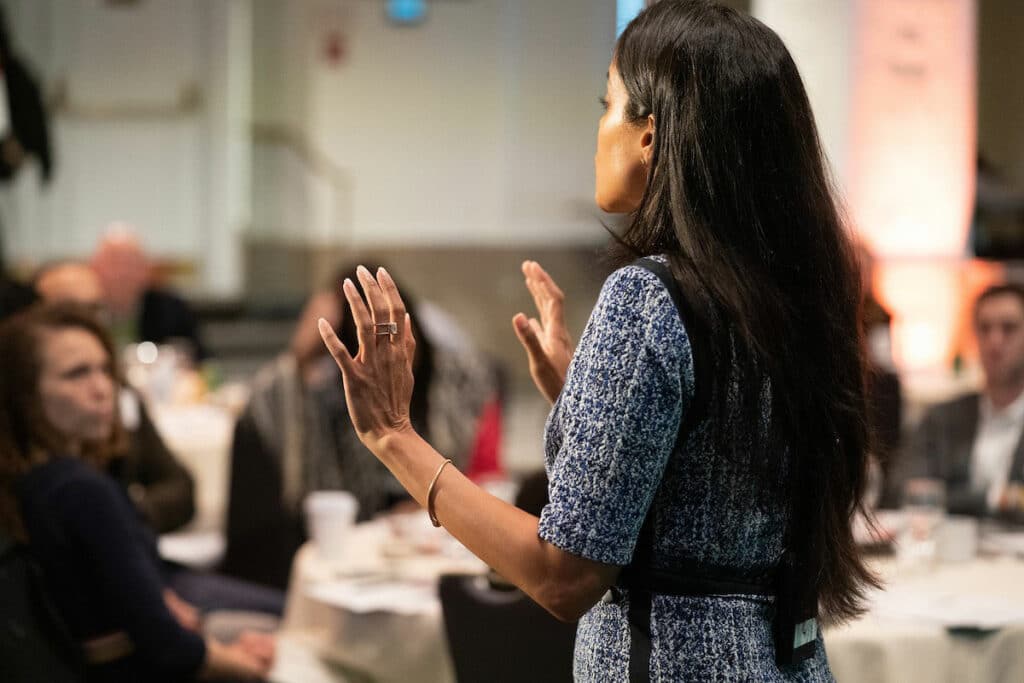
As another year comes to a close, I wanted to take a moment to acknowledge that for DEI professionals, 2022 has been particularly challenging.
For the last few years now, we’ve been working hard to ensure that people from across cultural communities who experience workplace inequities don’t fall through the cracks. But so much happened in 2022 – from the continued challenge of working and living through a pandemic to juggling hybrid working, from our ongoing efforts to address racial injustices to dealing with our collective experiences with workplace burnout.
We’ve been contending with so many issues all year long! And this has been on top of having to manage the fallout from trauma-inducing societal events like mass shootings that disproportionately impact BIPOC communities and the effects of the Supreme Court ruling on reproductive health.
And how about this: we’ve been doing this hard work while also trying to manage our own mental health and wellness.
If you are a DEI professional who’s finding this moment to be especially difficult, know that you’re not alone! It’s a lot.
It’s not surprising that so many of us are experiencing diminished mental health ourselves, which is why it’s so critical that we prioritize self-care, especially as the year draws to a close.
I’ve shared this quote from Audre Lorde many times before: “Caring for myself is not self-indulgence, it is self-preservation, and that is an act of political warfare.”
As 2022 comes to an end, one of the most important things we can each do as DEI professionals is to take care of ourselves. We want to keep showing up and making an impact, and to do this we need to be our best. But that won’t happen unless we engage in strategies that keep us at our best. This is why I say that self-care is DEI work.
As the new year approaches, let’s all commit to prioritizing our self-care so that we can continue to be healthy and well — because this is what we need to disrupt systems of oppression, including in the workplace.
If you’re looking for self-care practices, I talk about this a lot on my empowerment website — I hope you’ll check them out. Finally, I’m sending you all lots of positive energy as you turn the page into 2023.
Let’s make magic happen together this coming year!
Sign up for bci’s mailing list to get the latest diversity, equity and inclusion insights right to your inbox every month.
Komal is bci’s Senior DEI Consultant and Mental Health Expert-in-Residence and an accomplished DEI facilitator, coach, and strategist. Komal has over 20 years of experience in providing strategic and advisory guidance and program development across a range of sectors, with a particular concentration in mental health and racial inclusion. Komal is also the founder of Insayva Inc., a social enterprise focused on providing accessible DEI and health equity support to charities and non-profit organizations.
Komal has extensive experience in creating and delivering programming in a range of leadership and DEI areas, including mental health inclusion, psychological safety, empathy, relationship repair, allyship, and cultural competence. She is passionate about driving transformational change in workplaces and has worked closely with bci clients – corporations, professional service firms, health care providers, and educational institutions – to embed cultures of inclusion within their organizations.
Komal has provided one-on-one inclusion coaching to hundreds of senior leaders and brings a unique approach that is informed by her background as a therapist. She is able to expertly handle sensitive conversations and situations and works with leaders to develop the knowledge and skills necessary to advance racial/ethnocultural, gender, and mental health-related equity across teams and organizations. Komal also offers a performance coaching program designed specifically for BIPOC leaders. This program aims to help BIPOC leaders harness their place, position, and identity to thrive in the workplace and beyond. Komal is a qualified administrator of the Intercultural Development Inventory (IDI).
As bci’s Mental Health Expert-in-Residence, Komal offers tremendous expertise around workplace mental health. As a doctoral trained mental health clinician, certified health executive, and registered social worker, Komal has assisted organizations looking to advance employee mental health inclusion and well-being through offering programming on inclusive dialogue, anti-stigma, burnout prevention, psychological safety, resilience, and self-care. Komal is committed to advancing mental health and wellness across the life course; she currently serves on the board of the Alzheimer’s Society of Ontario and previously served on the boards of Children’s Mental Health Ontario and the YMCA of Greater Toronto.
When Komal is not working, you’ll find her painting, cooking, or snuggling with her cats.